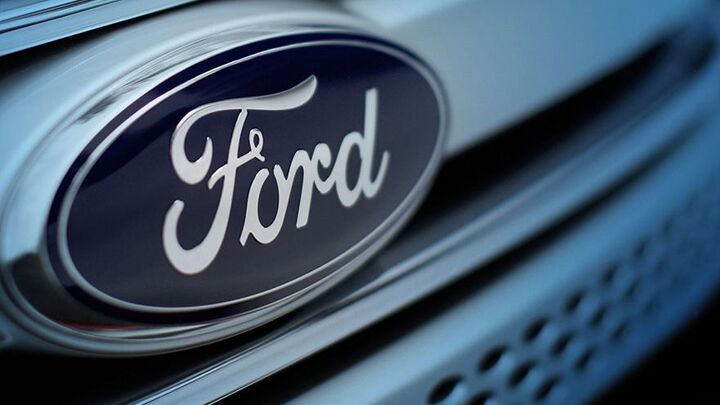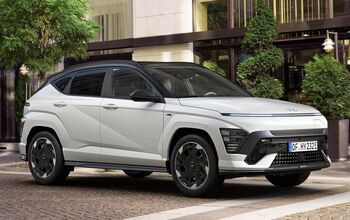Report: Ford Vows Better Dealer Engagement, NADA Attendees Vexed

Last week, Ford CEO Jim Farley asked a group of dealers for some open and honest feedback while promising to spend the next few weeks visiting showrooms. The point was to create a conversation between the automaker and dealerships that have grown annoyed with some of the changes Ford has been asking them to make. However, the latest from the North American Dealers Association (NADA) meeting makes it sound like the relationship may still be dicey.
According to Automotive News, Blue Oval has been promising better communication with all businesses tied to sales — with chief dealer engagement officer Elena Ford having stated that things need to change on Friday.
But dealers attending the NADA show in Las Vegas on Saturday expressed their dismay that Ford snubbed a Q&A segment presumed to take place during a larger follow-up meeting.
From Automotive News:
The next day, however, some dealers who attended Ford's larger make meeting left disgruntled after executives offered few specifics on hot-button issues such as electric vehicles or quality improvements. The officials also failed to take questions from the dealers, in a break from the company's standard practice.
Farley was not at the second meeting, which involved broad discussions about 2023 highlights and 2024 goals, according to multiple people in the room. At a time when dealer trust levels in Ford have plummeted, some retailers had hoped to ask about the EV certification program and recall concerns but were surprised to not get an opportunity. Executives did offer to stay and talk with dealers informally after the meeting let out, one attendee said.
"It's very disappointing when you have a town hall setting and you don't get to have your voice heard," said the dealer, who asked to not be identified discussing a closed-door meeting.
This isn’t exclusively a Ford problem, however. There is a growing sense that the automotive industry is keen to scale back dealerships in general to engage in more direct sales in a manner mimicking how Tesla does its business. While state laws have long prohibited automakers from directly selling their vehicles to consumers, the industry seems to be taking steps to do exactly that and now has a company to cite as precedence. Many showrooms have already grown antsy about the prospect of having to spend six-figure sums to prepare for all-electric vehicles they’re not even certain they want, so the added pressure of dealer consolidation (or outright elimination) is creating additional pressure.
Of course, few people are going to bother to feel sympathy after years of reports outlining severe dealer markups. Some of that was down to old-fashioned greed. But the industry also went through years of production shortfalls that spiked demand and intentionally eliminated their most-affordable models to game increasingly stringent government regulations. It could certainly be argued that automakers and even federal regulators are likewise responsible for the staggering price increases you’ve encountered at the dealership.
These were things NADA attendees with ties to the Ford Motor Company had hoped to clear up going into the event.
"We're going to have a dealer panel at the make meeting, and there's going to be more Q&A from the dealer body," David Wilson, chairman of the Ford National Dealer Council, told Automotive News going into the event. "We're going to have more of a two-way conversation."
Ford has refused to make any executives available for comment following the meeting and Wilson declined to comment on the matter. However, at least some of the meeting was devoted to addressing some of the aforementioned concerns. Attendees just believed them to be too generalized without offering concrete solutions. The best they got was the automaker promising to rework its EV certification program for dealers as time went on.
Rather than supposing which side of the situation is in the right here, it’s likely more useful to take away that rifts have been forming between dealers and manufacturers. If either side is keen to maintain the relationship, they’re going to have to work together better than they have been thus far.
[Image: Ford Motor Co.]
Become a TTAC insider. Get the latest news, features, TTAC takes, and everything else that gets to the truth about cars first by subscribing to our newsletter.

A staunch consumer advocate tracking industry trends and regulation. Before joining TTAC, Matt spent a decade working for marketing and research firms based in NYC. Clients included several of the world’s largest automakers, global tire brands, and aftermarket part suppliers. Dissatisfied with the corporate world and resentful of having to wear suits everyday, he pivoted to writing about cars. Since then, that man has become an ardent supporter of the right-to-repair movement, been interviewed on the auto industry by national radio broadcasts, driven more rental cars than anyone ever should, participated in amateur rallying events, and received the requisite minimum training as sanctioned by the SCCA. Handy with a wrench, Matt grew up surrounded by Detroit auto workers and managed to get a pizza delivery job before he was legally eligible. He later found himself driving box trucks through Manhattan, guaranteeing future sympathy for actual truckers. He continues to conduct research pertaining to the automotive sector as an independent contractor and has since moved back to his native Michigan, closer to where the cars are born. A contrarian, Matt claims to prefer understeer — stating that front and all-wheel drive vehicles cater best to his driving style.
More by Matt Posky
Latest Car Reviews
Read moreLatest Product Reviews
Read moreRecent Comments
- John Clyne I own a 1997 GMC Suburban that I bought second hand. It was never smoked in but had lost the new car smell when I got it four years after it was sold new. I own a 2005 Chevrolet Avalanche & that still has the new car smell. I like the smell. I could never afford a new car until the Avalanche. It might be my last new car? Why do they build cars with fire retardant materials in them. Smoking rates are falling & if someone continues to smoke in this day & age is a fool especially with all the information out there.
- Theflyersfan Non-performance models, probably the Civic based on the fact the interior feels and looks better in the Honda. Both of them are going to drive like adequate appliances with small engines and CVTs and get decent mileage, so this is based on where my butt will rest and things my hands and fingers will touch.Toyota doesn't have an answer to the Civic Si so the Honda wins by default.CTR vs GR Corolla. One dealer by me is still tacking on $10,000 markups for the CTR and good luck with the GR Corolla and the "allocation" system. There's that one dealer in Missouri that I pasted their ad a while back wanting $125,000 for a mid-level GR. Nope. But cars.com is still showing markups. Both of these cars will have little depreciation for a while, so the markups equal instant loss. It looks like Cincinnati-area dealers are done with CTR markups. So this is a tough choice. I don't like the Corolla interior. It looks and feels inexpensive. I'm glad Honda toned down the exterior but the excessive wing still looks immature for such an expensive car that 20-somethings likely cannot afford. FWD vs AWD. With price being an object, and long-term maintenance a thing, I'd go with the Honda with a side eye at the Golf R as a mature choice. All with stick shifts.
- ChristianWimmer Great first car for someone’s teenage daughter.
- SCE to AUX Imagine the challenge of trying to sell the Ariya or the tired Leaf.
- Offbeat Oddity I would have to test them out, but the Corolla might actually have a slight edge. I'd prefer the 2.0 in both cars, but to get one in a Civic with a decent amount of equipment, I'd be stuck with the Sport where the fuel economy suffers vs. the Corolla. If the Civic EX had a 2.0, it would be a much tougher decision.


































Comments
Join the conversation
NADA is anti-consumer and pro-dealership.
NPR weighs in on electrification.